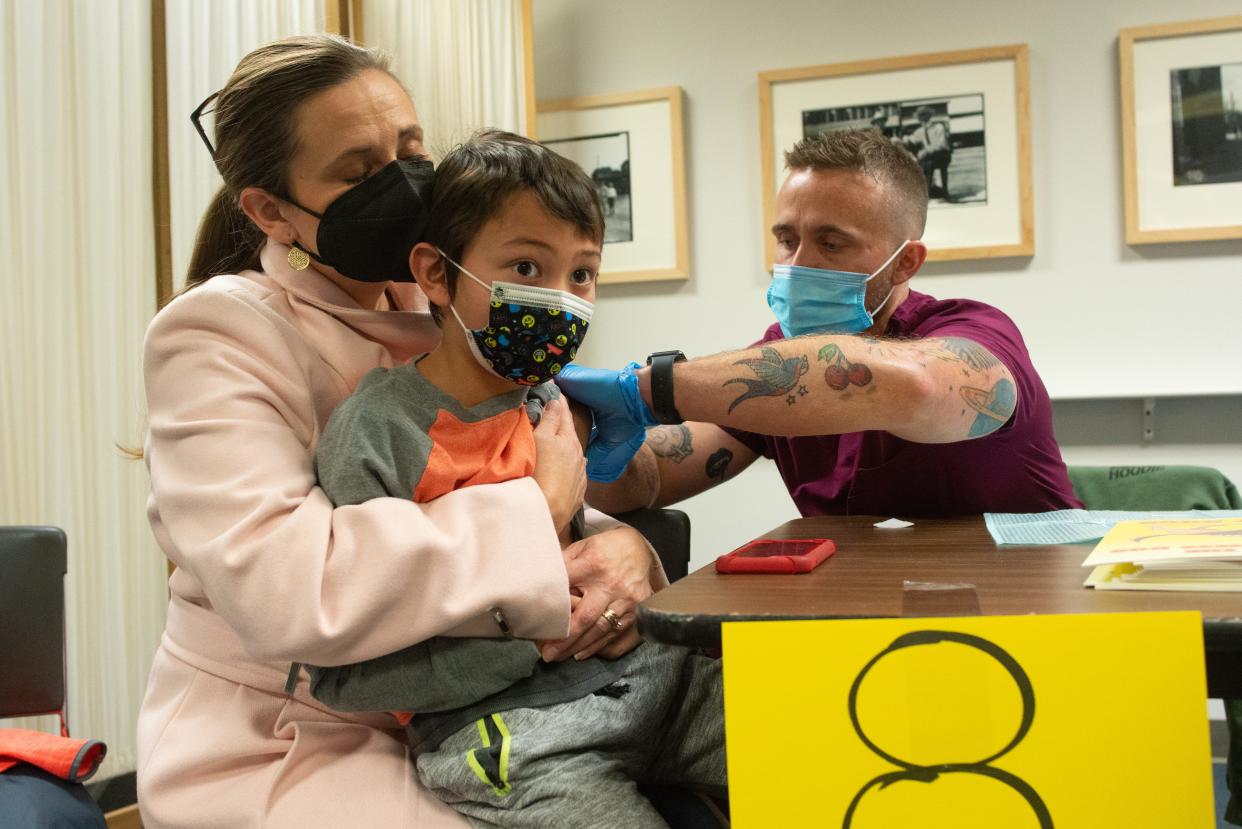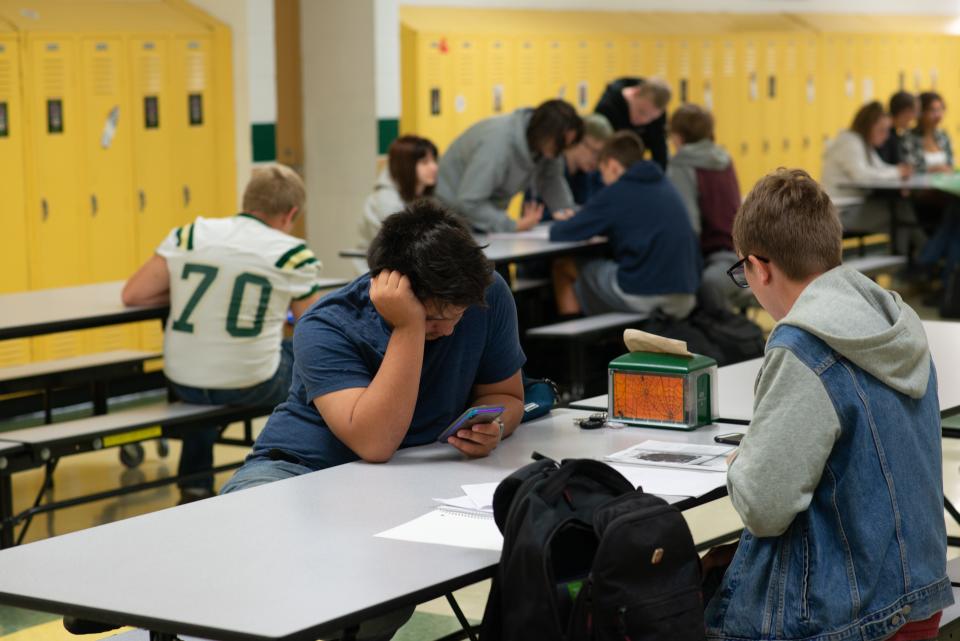'Schools are becoming weary of the fight' on masks as Kansas children begin COVID vaccinations

Kansas health officials are encouraging schools to continue masking while data on vaccinations for children ages 5-11 remains unavailable.
Health authorities last week granted emergency use authorization to the lower-dosage Pfizer vaccine for the younger age group.
The Kansas Department of Health and Environment indicated that data on vaccine administration for children ages 5-11 will be available through its online dashboard starting Nov. 17 in order "to allow time for pediatric vaccination programs to begin."
Of the 12-17 population, which has been eligible flor vaccination since May, 53% of Kansans and 60% of Americans have gotten at least one dose.
Gov. Laura Kelly said last week that Kansas was getting 128,000 of doses for children in the "first wave of vaccine distribution." The state has about 260,000 children in the 5-11 age group.
KDHE data provided to the governor's Safer Classrooms Workgroup on Wednesday show 259 pediatric providers, local health departments and pharmacies across 90 counties have ordered a combined 109,760 doses of Pfizer's 5-11 vaccine. The remaining 15 counties have not ordered any doses, according to the data.
In Shawnee County, 11,160 doses have been ordered.
Federal data show Kansas continues to have high community spread. School-aged children — and those ages 5-11 in particular — have the highest positive test rates in the state.
So far this month, Kansas has reported 2,596 case among children and 10 pediatric hospitalizations.
As of Wednesday, KDHE reported 45 active school clusters with three outbreaks connected to sports and 10 at daycares. A fraction of the outbreak locations were publicly identified.
In the past two weeks, Buhler Grade School had 11 cases, Emporia Christian School had 11 cases, Great Bend High School had six cases, Stafford USD 349 had 12 cases, Troy Unified School District 429 preschool through eighth grade had 12 cases, Valley Heights Junior High School had nine cases and The Bartsow School in Kansas City, Mo., had eight cases from Johnson County.
Seaman Middle School's wrestling team had 10 cases and Smoky Valley Middle School's girls basketball team had five cases.
The workgroup has emphasized vaccination, testing and masking as the primary tools to keep schools open safely.
Marci Nielsen, a pandemic adviser to the governor, said at Wednesday's meeting that Kansas data show case counts have started "ticking up just a bit" and "we see that testing is continuing to fall, even as cases remain high."
Her presentation showed that while most schoolchildren attend a public or private school that has implemented or is working to start a KDHE testing protocol, the state has about 80,000 children who attend schools that have shown no interest in testing for COVID-19.

State data shows that, per capita, students are eight times more likely to get infected in an outbreak at a school without a mask requirement than at a school with such a mandate.
"Those schools without mask mandates are seeing many, many more outbreaks of COVID," Nielsen said. "So this data continues to makes the case that masking policies in schools keep kids in schools and reduce the amount of COVID outbreaks that we're seeing."
Education Commissioner Randy Watson concurred with the "great work that masking does in schools, but those schools are becoming weary of the fight." He said the local education officials have grown discouraged at a lack of masking elsewhere in their communities, questioning the public health benefits when schools are the only congregate setting following the expert guidance.
"What I'm saying is you may start to see the masking numbers drop — which is a very effective strategy in schools of containing the number of kids that don't have to be out of school and don't have to be hospitalized and have any severe complications," Watson said.
Wichita Public Schools health services director Kimber Kasitz said the district saw a "drastic decrease in the number of cases since we implemented our mask mandate." She said on occasion, though, there have been clusters connected to school events where masks were not worn, such as at afterschool clubs or during meals.
Kasitz said she understands people are tired of masking up, "however we all know the science show, the data shows, that it does make a difference in protecting others when you have a mask on." She said the district is starting to see flu cases, "and last year we really didn't see flu because we were masked."
"Districts are fatigued and giving up on masking, but it's truly before our youngest kids are protected and vaccinated," pediatric hospitalist Stephanie Kuhlmann said, noting it will take several weeks for children to become fully vaccinated. "Certainly giving that up too soon, we may likely see increased cases in our schools and community again."
Vernon Mills, a pediatrician, said that people continue to propagate the lie that the pandemic doesn't exist or that COVID-19 is gone. He encouraged officials to "keep telling the truth" and "stay the course" on mitigation measures "until this is gone."
"It's as stupid as you can possibly be to see people still dying, the caseloads still going on ... you can see this hasn't gone anywhere and will not go anywhere until people really start to vaccinate and do a bit better job with doing the things that they're supposed to, like wearing a mask," he said.
Jason Tidd is a statehouse reporter for the Topeka Capital-Journal. He can be reached by email at jtidd@gannett.com.
This article originally appeared on Topeka Capital-Journal: Kansas doctors encourage masking as children get COVID vaccines

